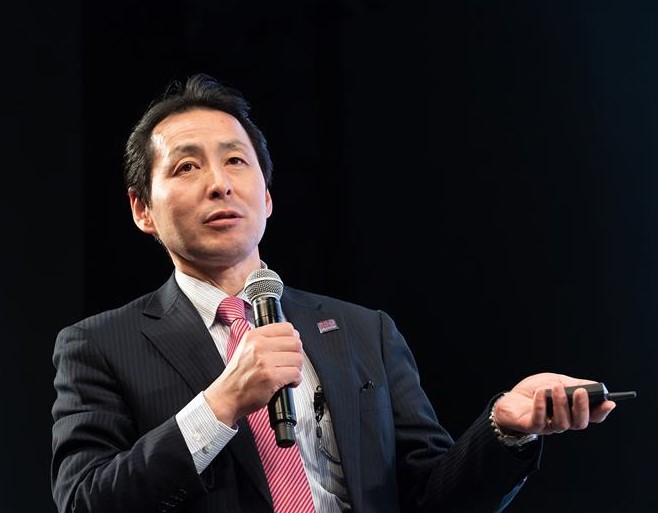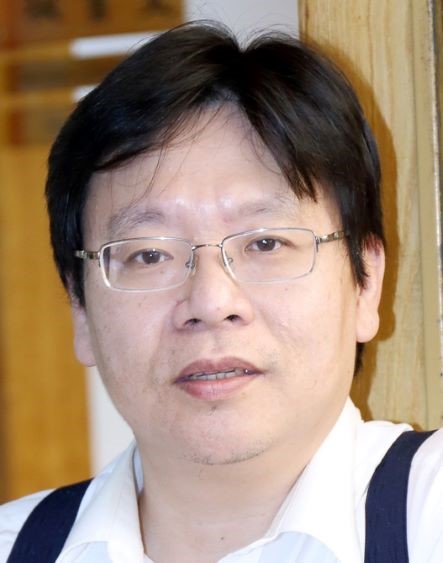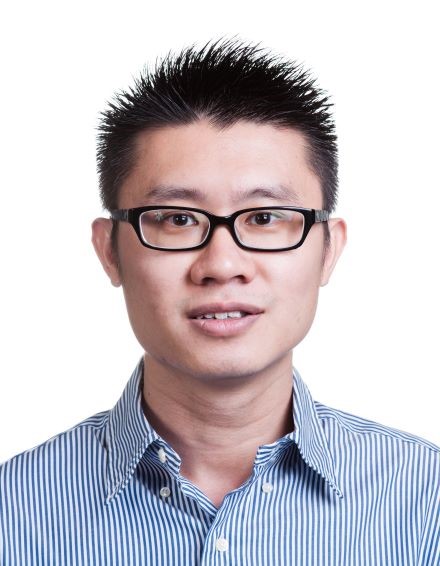Keynote:

TAKEHIRO NAKAMURA
SVP and General Manager of the 6G-IOWN Promotion Department in NTT DOCOMO, Inc.
Title: 5G Evolution and 6G
Abstract: Commercial 5G services have been launched globally. Study and development for technologies toward the evolution of 5G are ongoing, taking into account issues in early 5G services and emerging market needs. In parallel, research focused on technologies and services beyond 5G and 6G is accelerating throughout the world. NTT DOCOMO published a white paper on 5G evolution and 6G in January 2020 and updated it in February 2021. This presentation will explain NTT DOCOMO’s views described in the white paper as well as our latest activities on 5G evolution and 6G.
Biography: Mr. Takehiro Nakamura joined NTT Laboratories in 1990. He is now SVP and General Manager of the 6G-IOWN Promotion Department in NTT DOCOMO, Inc. Mr. Nakamura has been engaged in R&D and the standardization activities for advanced radio and network technologies of W-CDMA, HSPA, LTE/LTE-Advanced, 5G and 6G. He has been the Acting Chairman of Strategy & Planning Committee of 5G Mobile Communications Promotion Forum(5GMF) since October 2014, the leader of Cellular System Task Group of ITS Info-communications Forum since 2016, and the leader of White Paper Subcommittee in Beyond 5G Promotion Consortium in Japan since February 2021. Mr. Nakamura has also been contributing to standardization activities in 3GPP since 1999, including as chairman of 3GPP TSG-RAN from April 2009 to March 2013.
Invited Talks:

SEONG-LYUN KIM
Professor and Head of the School of Electrical & Electronic Engineering, Yonsei University, Seoul
Title: Federation and Split in Wireless AI: 5G Smart Factory Use Case Perspective
Abstract: The 5G system is under its way toward successful deployments, bridging between wireless communications and vertical applications (e.g., city, factory, vehicles, etc). On the other hand, the research community launched B5G or 6G research, wherein key white papers are talking about service scenarios in 2030. AI/Machine Learning is to be an important ingredient, known as either “AI for Wireless” or “Wireless for AI.” The talk will give insights on how federation and split computation needs to be merged into AI algorithms for future wireless systems. The key performance indices include accuracy, delay, reliability and energy-channel-efficiency. The talk introduces an example from a 5G smart factory, to see how such distributed computation and communications make impact on future wireless systems.
Biography: Seong-Lyun Kim is a Professor and Head of the School of Electrical & Electronic Engineering, Yonsei University, Seoul, Korea, heading the Robotic & Mobile Networks Laboratory (RAMO) and the Center for Flexible Radio (CFR+). He is co-directing H2020 EUK PriMO-5G project, and leading Smart Factory Committee of 5G Forum, Korea. He was an Assistant Professor of Radio Communication Systems at the Department of Signals, Sensors & Systems, Royal Institute of Technology (KTH), Stockholm, Sweden. He was a Visiting Professor at the Control Engineering Group, Helsinki University of Technology (now Aalto), Finland, the KTH Center for Wireless Systems, and the Graduate School of Informatics, Kyoto University, Japan. He served as a technical committee member or a chair for various conferences, and an editorial board member of IEEE Transactions on Vehicular Technology, IEEE Communications Letters, Elsevier Control Engineering Practice, Elsevier ICT Express, and Journal of Communications and Network. He served as the leading guest editor of IEEE Wireless Communications and IEEE Network for wireless communications in networked robotics, and IEEE Journal on Selected Areas in Communications. He also consulted various companies in the area of wireless systems both in Korea and abroad. His research interest includes radio resource management, information theory in wireless networks, collective intelligence, and robotic networks. He published numerous papers, including the co-authored book (with Prof. Jens Zander), Radio Resource Management for Wireless Networks. His degrees include BS in economics (Seoul National University), and MS & PhD in operations research (with application to wireless networks, Korea Advanced Institute of Science & Technology).

YI-BING LIN
Chair Professor, NYCU, NCKU, CMU, THU, and Asia University
Title: Zero-Touch Pervasive Computing: The IoTtalk Demonstration
Abstract: Due to COVID-19, human social behavior has been permanently changed. Such change offers new opportunities for pervasive computing based on Internet of Things (IoT) technology. An example is IoTtalk, an IoT application development platform for pervasive computing. IoTtalk provides zero-touch interactions between human and the environments using smartphones without any mobile app. In this article, we describe the IoTtalk architecture focusing 6 issues: application code verification, big data management, AI tool provisioning, IoT device development environment, sensor calibration, and security and privacy. We emphasize that IoTtalk is an environment for developing “platforms of applications”. Every developed platform for X-type applications is called X-Talk. We develop several X-Talk systems to address the above 6 issues. Finally, we use two zero-touch applications to demonstrate how anti-COVID-19 pervasive computing can be achieved.
Biography: Yi-Bing Lin is Chair Professor of National Yang Ming Chiao Tung University (NYCU), China Medical University, National Cheng Kung University and Asia University. He received his Ph.D. degree of Computer Science from the University of Washington, Settle, USA, in 1990. From 1990 to 1995 he was a Research Scientist with Bellcore. He then joined National Chiao Tung University (NCTU) in Taiwan, where he remains. In 2011-2013, Lin was the Senior Vice President of NCTU. During 2014 – 2016, Lin was Deputy Minister, Ministry of Science and Technology, Taiwan.
Lin is an Adjunct Research Fellow, Information Technology Innovation, Academia Sinica. He serves on the boards of directors in several companies including Information Technology Total Services and National Applied Research Laboratories. He serves on the editorial board of IEEE Trans. on Vehicular Technology. Lin is the author of the books Wireless and Mobile Network Architecture (Wiley, 2001), Wireless and Mobile All-IP Networks (John Wiley,2005), and Charging for Mobile All-IP Telecommunications (Wiley, 2008). Lin received numerous research awards including 2005 NSC Distinguished Researcher, 2006 Academic Award of Ministry of Education and 2008 Award for Outstanding contributions in Science and Technology, Executive Yuen, 2011 National Chair Award, and TWAS Prize in Engineering Sciences, 2011 (The World Academy of Sciences). He is in the advisory boards or the review boards of various government organizations including Ministry of Economic Affairs, Ministry of Education, and Ministry of Transportation and Communications. Lin is AAAS Fellow, ACM Fellow, IEEE Fellow, and IET Fellow.

YUEN CHAU
Associate Professor, Singapore University of Technology and Design
Title: Reconfigurable Intelligent Surface (RIS)-Assisted Wireless Networks
Abstract: In this talk, we will present some recent results on the reconfigurable intelligent surfaces (RIS)-assisted wireless network, including a hybrid beamforming for RIS-empowered multi-hop teraherz communications, intelligent spectrum learning with RIS, RIS-assisted MAC, and RIS-assisted aerial-terrestrial communications. In particular, we design an adaptive RIS-assisted transmission protocol, in which the channel estimation, transmission strategy, and data transmission are independently implemented in a frame. Then formulate an RIS-assisted transmission strategy optimization problem to maximize the overall system throughput.
Biography: Dr. Chau Yuen received the BEng and PhD degree from Nanyang Technological University (NTU), Singapore, in 2000 and 2004 respectively. He was a Post-Doctoral Fellow with Lucent Technologies Bell Labs at Murray Hill in 2005. From 2006 to 2010, he was with the Institute for Infocomm Research (I2R), Singapore. Since 2010, he has been with the Singapore University of Technology and Design. He received the IEEE Marconi Prize Paper Award in Wireless Communications and EURASIP Best Paper Award for JOURNAL ON WIRELESS COMMUNICATIONS AND NETWORKING on 2021, IEEE Asia Pacific Outstanding Young Researcher Award on 2012, and IEEE VTS Singapore Chapter Outstanding Service Award on 2019. Dr. Yuen serves as an Editor for IEEE TRANSACTIONS ON COMMUNICATIONS and IEEE TRANSACTIONS ON VEHICULAR TECHNOLOGY. Dr. Yuen is currently an IEEE Fellow and Distinguished Lecturer of IEEE Vehicular Technology Society.